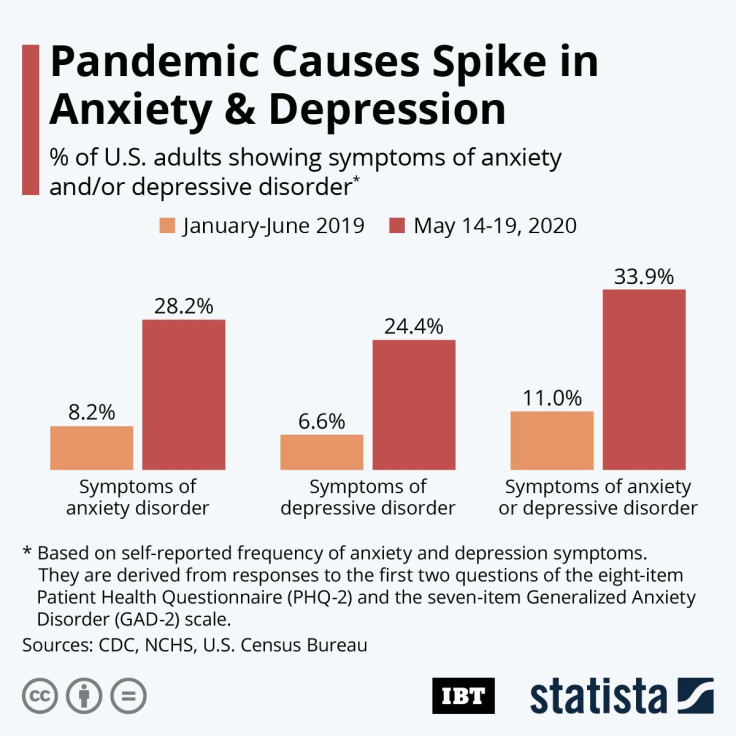Infographic: Pandemic Causes Spike In Anxiety And Depression

Aside from killing more than 100,000 Americans to date and wreaking havoc on the country’s economy, the COVID-19 pandemic is also taking its toll on mental health. That’s according to new data compiled by the U.S. Census Bureau and the National Center for Health Statistics, showing that one third of U.S. adults have symptoms of depression or anxiety, a sharp increase over the results of a comparable survey conducted in the first half of 2019.
The latest findings are derived from the Household Pulse Survey, which has been launched to produce data on the social and economic impacts of COVID-19 on American households. A total of 119,897 Americans were surveyed about their mental health between May 14 and 19, asked to report how often they have felt down, depressed, hopeless or anxious in the last week, how often they have been unable to stop worrying or shown little interest or pleasure in doing things – all symptoms that have been shown to be associated with diagnoses of generalized anxiety disorder or major depressive disorder.
As the following chart shows, the share of respondents showing signs of anxiety or depression has more than tripled compared to results obtained before the pandemic. As thousands have died and millions have lost their jobs, Americans are facing a plethora of uncertainties with respect to their and their families’ health and financial wellbeing, worries which are only exacerbated when dealt with alone amid a time of social distancing.





















